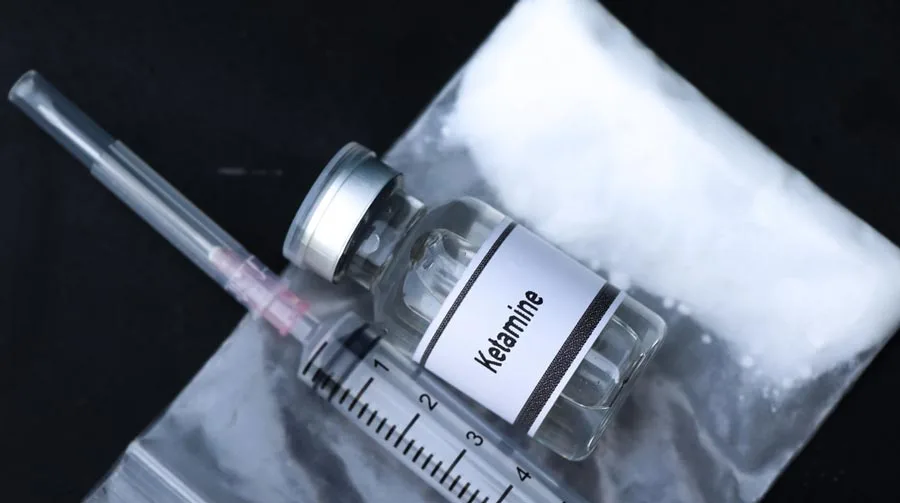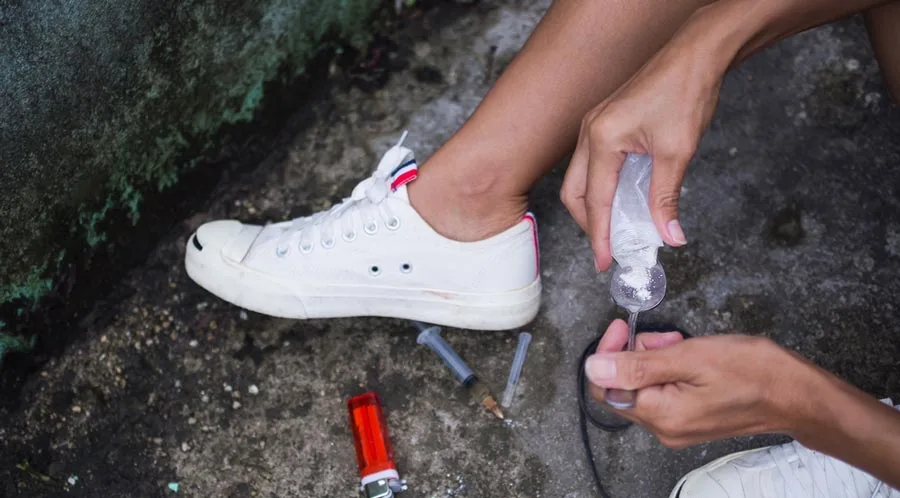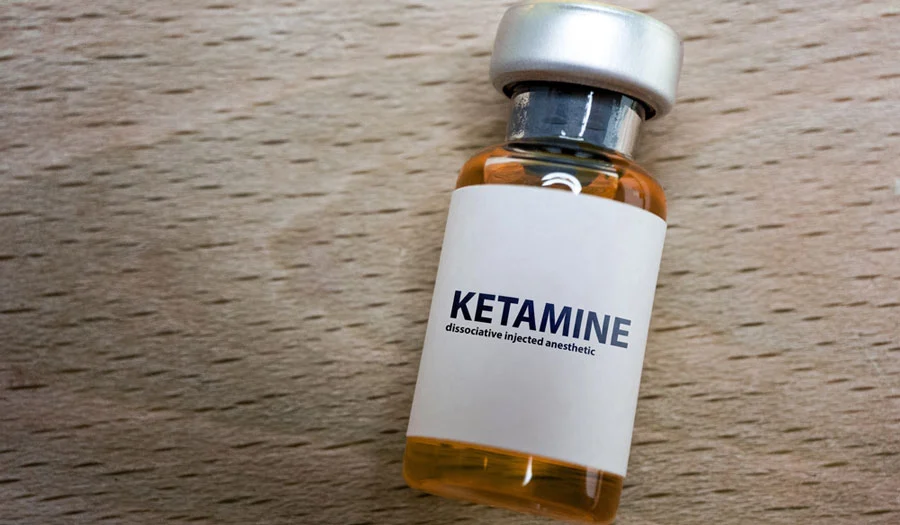Understanding the Chemical Nature of Ketamine
Suffering from chronic conditions like depression or daily pain can be debilitating and discouraging. When you have to live every day feeling less than 100%, it’s easy to be tempted to try quick fixes like ketamine or opioids.
Unfortunately, once you’re on them for a while, you realize that these drugs are not as simple of a cure as you had hoped, which can lead to drug abuse and misusing similar drugs in self-treatment.
A common question for people who are suffering from an existing opioid addiction or chronic pain is, “Is ketamine an opioid?” because they want to avoid addiction or overdosing. In many cases, ketamine is seen as a less risky option than opioids that have a proven track record for addiction. But, if you’re suffering from an opioid addiction and want to move to ketamine for similar effects with less risk, you’re better off getting help with your addiction.
South Shores Detox is a comprehensive drug treatment center in Orange County that helps people overcome addictions to drugs like heroin or fentanyl safely while achieving long-term results. If you’re worried about the risks of opioids but don’t feel like you can stop on your own, let South Shores Detox’s team of mental health professionals help you find the best and safest recovery solution.
Keep reading to learn more about ketamine, opioids, and the benefits of addiction treatment for chronic drug use.
What Is Ketamine?
Ketamine hydrochloride, also known as Ketamine, is a non-opioid anesthetic and analgesic that’s used for short-term pain control and sedation in people and animals. It’s generally a part of preparing or recovering from surgery because it acts on the brain’s opioid receptors to numb pain, while the hallucinogenic properties cause you to dissociate to help reduce trauma. But, like most drugs, ketamine has off-label and recreational use cases as well.
In the News: Using Ketamine to Treat Depression
Ketamine is a synthetic compound and its intended use is specifically as an anesthetic, but it has also been shown to provide short-term relief from mental health conditions like anxiety and treatment-resistant depression.
Ketamine for depression works by increasing the amount of glutamate, a neurotransmitter that affects cognition and mood regulation, in your opioid system. It operates similarly to antidepressants that increase another familiar neurotransmitter, serotonin, to regulate mood, emotions, appetite, and many other crucial processes impacted by mental health conditions.
Users who have tried ketamine to treat depression symptoms claim that it works quickly, providing benefits in as little as one treatment. You can take it through lozenges or via Spravato, a nasal spray containing ketamine that’s FDA-approved for major depressive disorder. Your doctor may also prescribe an antidepressant alongside ketamine to minimize the dose required to achieve therapeutic effects and improve the long-term viability of ketamine treatment.
The Risks of Recreational Ketamine Use
People who use ketamine recreationally are often looking to experience the euphoric feelings and altered perceptions associated with a “K trip” or taking excessive ketamine to create a high. It’s commonly turned from a liquid into a crystal and then snorted for fast onset and short-term high, but some users will have ketamine infusions or smoke it as well.
As an addictive substance, recreational ketamine use comes with the risk of developing a dependence with continued use in high doses. You may also experience symptoms like high blood pressure, respiratory depression, panic attacks, hallucinations, and even bladder damage, known as ketamine bladder syndrome.
Is Ketamine Safe For Long-Term Use?
Ketamine has been used as an anesthetic for decades and has shown promise as an antidepressant, but we don’t know much about the long-term effects of the drug on the opioid system. Historically, it’s only been commonly prescribed for short periods of time and in hospital settings, so the long-term safety isn’t well-documented like antidepressants and other mental health treatments.
However, it’s likely that the low-dose nasal spray used to treat depressive symptoms is safer for long-term use than dosages used for pain management because there’s less of the drug to interfere with other functions in the opioid system.
What Are Opioids?
Opioids, commonly known as painkillers, are used to treat short-term and long-term pain. Common opioids include morphine, oxycodone, heroin, and fentanyl, as well as Suboxone and methadone, which are used to help you taper off stronger opioids safely.
Opioids work by interacting with opioid receptors that send pain signals, release dopamine, and reinforce addictive behaviors as a reward for taking pleasurable drugs. Opioids like morphine bind to these receptors to reduce the intensity of the pain and alter your state of mind by releasing dopamine that redirects your focus from the pain.
When abused, opioids produce a strong high with feelings of euphoria and pleasure that can quickly become addictive.
Is Ketamine An Effective Alternative to Opioids?
Opioid overdoses cause more than 130 preventable deaths in the United States each day, or nearly 50,000 per year. Many of these are caused by fentanyl, which is 100 times stronger than morphine and 50 times stronger than heroin. It accounts for approximately 88% of opioid-related overdoses and up to 70% of all drug overdoses in the United States, so we must find safer alternatives that can achieve similar results.
Ketamine has been proposed as an alternative to opioids because it’s considered less addictive, falling into the designation of Schedule III drugs, while most opioids are Schedule II and considered highly addictive. It also treats mental health conditions that can accompany chronic pain, like anxiety and depression, to provide additional relief.
Ketamine vs Opioids for Chronic Pain
Both ketamine and opioids work to treat chronic pain by attaching to opioid receptors in the brain, but ketamine isn’t an opioid. Instead, it has a dual mechanism of action that attaches to and modulates glutamate receptors, so you don’t have as strong of a pain response. As a result, it doesn’t have as strong of an effect on your opioid receptors and reduces the risk of addiction slightly.
In many cases, ketamine is used as a short-term pain medicine in emergency rooms and surgery recovery, particularly in people who can’t use opioids safely. Most medical forms of ketamine used for chronic pain will be a liquid that is given intravenously and begins working immediately.
Opioids are prescribed for treating chronic pain at home, usually coming in the form of pills and other patient-friendly formulations to make it easier to maintain a consistent dose. They may take 10-20 minutes to work, but opioids generally last longer than ketamine.
Switching to Ketamine to Avoid Opioid Addiction
If you’re concerned about developing an opioid addiction after surgery, you may be considering ketamine as a safer alternative. In short-term use, ketamine can lower the risk of addiction without sacrificing pain relief. However, while it’s true that ketamine has a lower risk of addiction, we don’t know how well it works as a long-term solution yet.
You also can’t directly switch from opioids like heroin or fentanyl to ketamine despite its impact on the opioid system. A strong addiction can lead to serious and possibly fatal symptoms of opioid withdrawal if you stop too quickly, so instead of replacing illicit or illegal opioid use with ketamine on your own, the safest thing to do is overcome your addiction with rehab.
How to Overcome Opioids Without Using Ketamine
Addiction, especially to dangerous substances like opioids, can significantly impact every aspect of your life. You constantly have to worry about whether the drugs you’re taking are real and be on alert for signs of overdose, which is far too common with heroin and fentanyl.
Unfortunately, if you abuse one drug, self-medicating with another less harmful drug won’t solve your problem. If you properly taper your opioid dependence and begin using ketamine, you may be able to avoid serious withdrawals, but you’ll still be addicted to a potentially harmful substance.
The only way to break the cycle of relying on non-prescribed painkillers is to get clean with the help of an addiction treatment center. Once you do, you’ll be able to work on improving your health and addressing problems instead of covering them up.
Give Yourself the Chance to Get Clean at South Shores Detox
Addiction treatment for opioid abuse is a crucial step toward getting clean. You can’t just switch to ketamine and hope things get better – you need to free yourself of all chemical dependence so you have a clear mind and can work to take back control of your life.
Whether your addiction began after receiving prescription painkillers for an injury or surgery or you’ve been using drugs like heroin for the euphoria, you need opioid addiction treatment.
South Shores Detox is a complete drug and alcohol rehabilitation center serving the Orange County community with holistic care and customized treatment plans. Their medication-assisted medical detox ensures you can safely overcome your dependence on opioids and other drugs so you can work to address the cause of the addiction. Once you’re clean, you’ll participate in individual and group therapy, experiential therapy, and even surfing to clear your mind and help you find peace.
Don’t rely on self-medication. Contact us today so we can help you navigate the winding road to recovery with the right treatment for you.
SOURCES:
- https://www.dea.gov/sites/default/files/2020-06/Ketamine-2020.pdf
- https://www.ncbi.nlm.nih.gov/pmc/articles/PMC8586693/
- https://www.fda.gov/news-events/press-announcements/fda-approves-new-nasal-spray-medication-treatment-resistant-depression-available-only-certified
- https://www.ncbi.nlm.nih.gov/pmc/articles/PMC5126726/
- https://www.hrsa.gov/opioids
- https://www.cdc.gov/drugoverdose/deaths/index.html
- https://www.ncbi.nlm.nih.gov/books/NBK526012/




